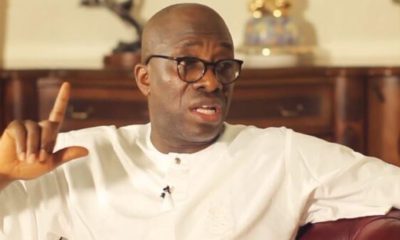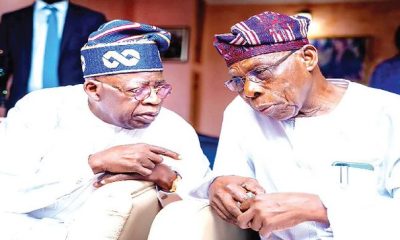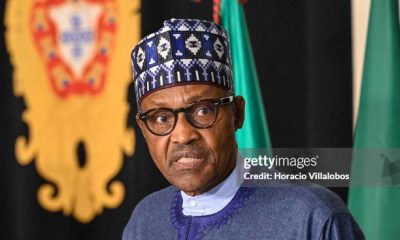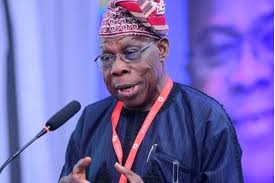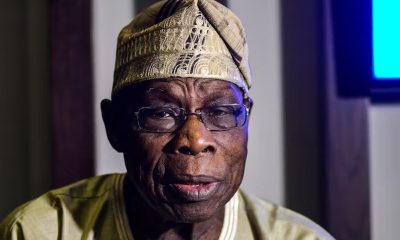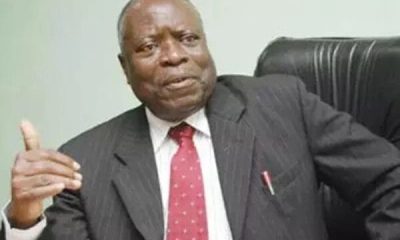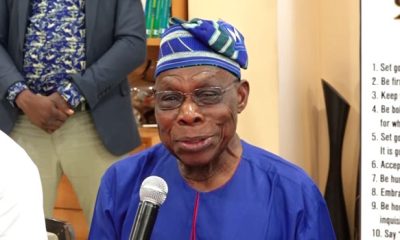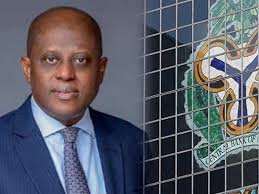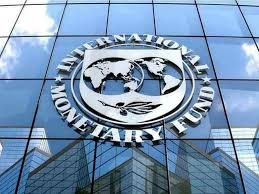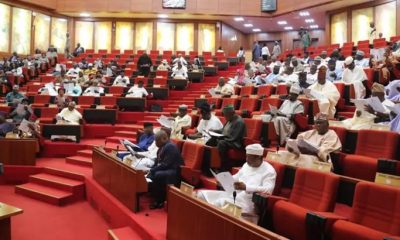Between 2015 and 2022, Nigeria witnessed a reversal of economic gains, as recorded by Presidents Olusegun Obasanjo, Umaru Yar’Adua, and Goodluck Jonathan between 1999 and mid-2015.
The World Bank disclosed this in its latest Nigeria Development Update (NDU), themed, ‘Staying the course: Progress amid pressing challenges’. It painted a grim picture of how policy inconsistency and contracting the oil sector conspired to lower the gross domestic product (GDP) per capita by about one-third between 2015 and 2022.
“Income gains from 2000-2014 were partially reversed from 2015. Inconsistent macroeconomic policies, the contracting oil sector and external shocks lowered GDP per capita by about one-third between 2015 and 2022, while comparator countries continued to prosper,” it explained.
The report noted that an unorthodox monetary and foreign exchange policy crisis contributed to the inflation surge witnessed during the period, saying the CBN maintained heavy-handed foreign exchange management and loose monetary policies, including monetary financing of the fiscal deficit and development finance interventions while parallel market exchange rate premium and inflation soared.
Also, during the Mohammadu Buhari era, the report said fiscal deficits widened and Ways and Means of financing by the Central Bank of Nigeria (CBN) skyrocketed, forcing a rapid increase in debt pressures.
While the Bank acknowledged the economic and social hardship attributable to President Bola Tinubu’s reforms, it stated that the policies are beginning to bear positive fruits.
It added: “Major policy reforms are starting to yield positive results. Despite the very large adjustments, GDP growth has been resilient and is being driven by services and slightly edged up in the first quarter of 2024, which is largely helped by stabilising oil output.”
It observed that the foreign exchange reforms have achieved a market-reflective exchange rate in the official market while the foreign reserve buffer is growing with the parallel exchange rate premium closed. It added that foreign exchange turnover has nearly doubled just as foreign reserves are almost $39 billion.
CBN’s renewed focus on achieving price stability, tightened monetary policy and improved transmission mechanisms anchored on market rates have excite the global financial institution.
While sacrificing an affordable lending rate, the CBN has increased the Monetary Policy Rate (MPR) by a cumulative 850 basis points since February 2024. It also substantially increased and standardised the cash reserve ratio and conducted large and market-priced open market operations (OMOs). The apex bank has also normalised standing facilities, made frantic efforts to halt new development finance loans and phased out ways and means of financing to redirect its attention to market-based debt instruments.
Whereas a revenue-driven fiscal consolidation is on course, the government fiscal deficit shrunk, thanks to contained expenditures and a surge in revenues, the report noticed.
Against popular belief that fuel subsidy claims the largest chunk of government revenues, the report has a contrary opinion. It revealed that the surge in revenues largely reflects the removal of the implicit foreign exchange subsidy, which was even larger than the premium motor spirit (PMS) subsidy.
It highlighted that in 2022, the combined direct fiscal cost of foreign exchange and PMS subsidies reached a staggering N10.7 trillion which was 5.3 per cent of the GDP.
Noting the giant strides that have been made since June 2023, the World Bank believes there is still more job to be done going forward. It charged the Tinubu-led administration to maintain a unified, market-reflective exchange rate and implement a comprehensive, systematic framework for CBN foreign exchange interventions to provide clarity to market participants as to when and how CBN may buy or sell foreign exchange.
Focusing on transparently supporting market liquidity and price discovery is also crucial while measures to build liquidity in the NAFEM, including easing remaining restrictions, and channelling oil-related inflows to the market should be prioritised as well, it advised.
The report also stressed that efforts should be geared towards maintaining a market-reflective petrol price and ensuring that the gains from the removal of subsidy flow to the federation.
It urged the Federal Government to strengthen non-oil revenues, reform the value-added tax (VAT) regime, rationalise tax expenditures and improve tax administration by adopting an e-invoicing system while strengthening tax audits.
It also charged the government to increase the transparency of oil revenues, improve the reporting of oil revenues to the Federal Account and Allocation Committee (FAAC) and conduct an audit to reconcile what is owed by the NNPC Limited to the federation.
To be socially responsible, the report cautioned those in government to cut lavish lifestyles by reducing the cost of governance and wasteful expenditures such as the purchase of vehicles and external training while lowering the cost of collection of ministries, departments and agencies of government as well as government-owned enterprises.
Noting that macroeconomic stabilisation is crucial, it should be accompanied by more targeted and urgent support to poor and economically insecure households.
While acknowledging that inflation has started to wane with improved monetary policy, it remains high and sticky, saying the battle is far from over.
“Inflation has started to fall overall, but it is still very high, at 32.7 per cent year-on-year in September 2024. Inflation and slow growth have contributed to increased poverty along with other shocks, such as COVID-19, past economic missteps and the current necessary course corrections have contributed to an increase in the share of Nigerians living in poverty,” it stated.
While most Nigerians feel that the cash transfer programme of the Federal Government is shrouded in secrecy, the World Bank is seeking scale-up and fast-tracking of the programme.
It said: “Direct benefit transfers of N25,000 are being rolled out to 15 million recipients and their families (over 60 million Nigerians). As of October 8, 4.4 million households have received at least one tranche of payment and 0.8 million have received a second tranche. The authenticity of the individuals is being validated through the National Identification Number (NIN) or the Bank Verification Number (BVN) before making payments directly into recipient bank accounts.”
However, it observed that low coverage of NIN/BVN among the poor and economically insecure population has adversely impacted the pace of the rollout of the direct benefit transfers.
In the reckoning of the Bretton Woods institution, the minimum wage, which is now pegged at N70,000 may not impact most Nigerians saying only 4.1 per cent of the working population will benefit from the pay raise.
Indeed, statistics show that 44.0 per cent of Nigerians are in non-wage employment, 43.6 per cent are not employed or in subsistence farming, while 12.4 are in other forms of employment. However, within the 12.4 per cent, only 4.1 per cent of that would be affected by the new minimum wage law.
The World Bank insisted that the Federal Government should follow up the macroeconomic stabilisation with the creation of productive jobs, arguing that poverty-reducing labour market policies are needed urgently to harness the potential of Nigeria’s young population.
In the next 10 years, the number of 15–24-year-old Nigerians is set to increase by more than 12 million and the high number of working-age people relative to those who are too young or old to work can give Nigeria a sizable demographic dividend while a lack of productive jobs could turn the demographic dividend to a demographic burden. It warned Nigeria that creating jobs is not enough to lift people out of poverty as high employment and high poverty can co-exist.



